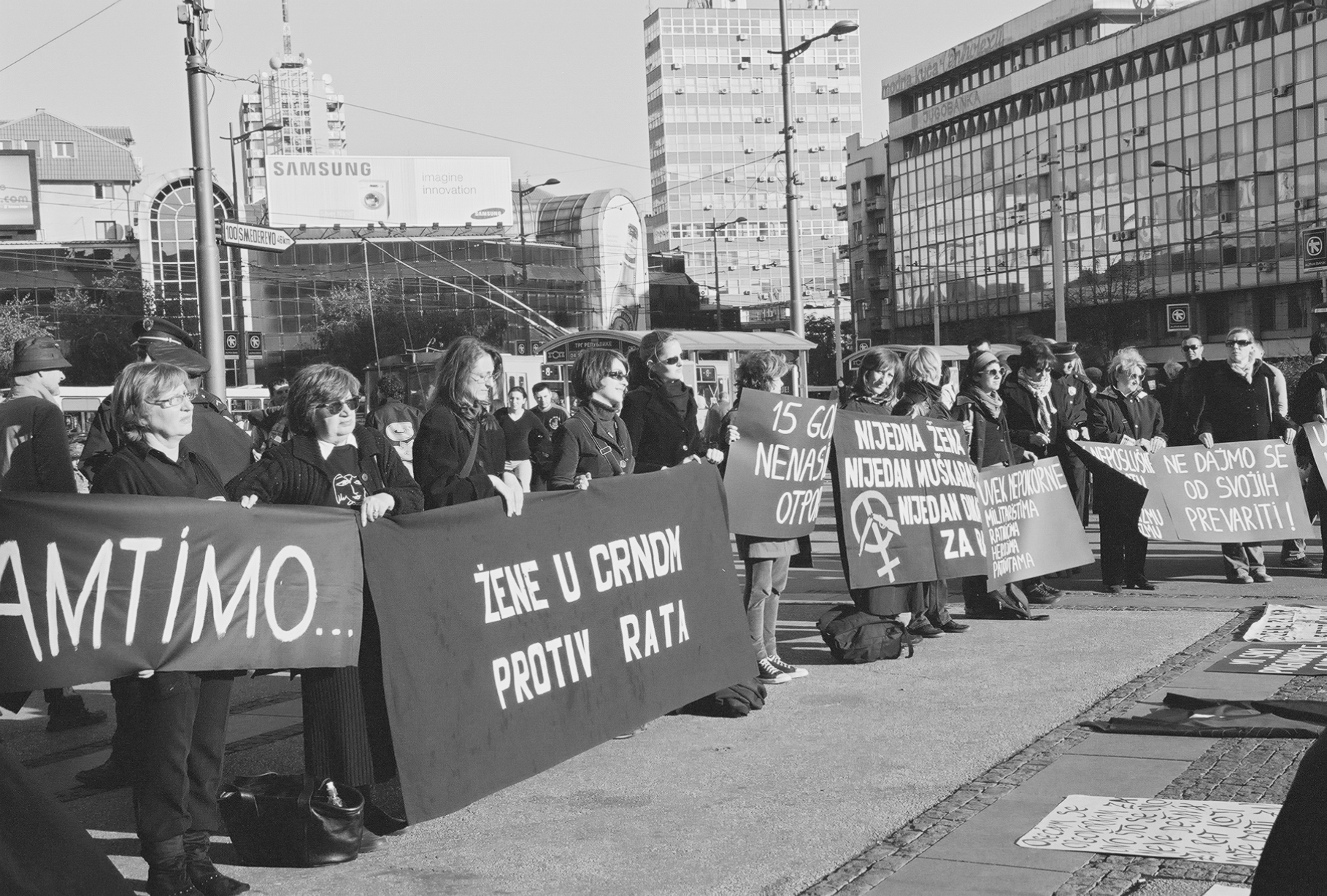Belgrade-based Women in Black has led the Women’s Court Initiative to empower women to redefine and achieve justice on their own terms.
Why we care: Twenty years after wars in the Balkans, many women survivors of war rape and war crimes have yet to achieve justice in courts and in communities.
How we are solving this: Launching a public outreach campaign and women’s leadership trainings throughout the former Yugoslavia to enable women to redefine and achieve justice.
“Women paid the highest price of war and violence, and proved to be the force that strongly influenced changes. The Women’s Court will be the space where voices of women and their testimonies are heard and where their contributions to peace and justice are recognized.” – from the inaugurating statement of the Women’s Court Initiative
When the war in Bosnia ended in 1995, the toll was staggering: two million displaced, 100,000 dead, and an estimated 20,000 women systematically raped, although the real number will never be unveiled due to heavy stigma. This was the bloodiest conflict on European soil since World War II, and was one in a series of wars that broke up the former Yugoslavia in the 1990’s.
Despite convictions in an international court and prosecution through state legal systems, injustices from the past, including war rape, have not been adequately addressed. Furthermore, distrust remains among the former Yugoslav countries, keeping the region volatile.
In response, Belgrade-based Women in Black has led the Women’s Court Initiative to empower women to redefine and achieve justice on their own terms. Under the initiative, women’s groups have already combined forces to mobilize communities and empower women across ethnic, religious, and national lines—in Bosnia and Herzegovina, Croatia, Kosovo, Macedonia, Montenegro, Serbia, and Slovenia. In 2011 alone, about 200 women’s groups organized over 100 events, mobilizing over 2,000 participants in cities throughout the Balkans to raise visibility of the Women’s Court.
Now, with women’s court proceedings set to begin in 2014, Women’s Court Initiative is on its last push to ensure women get justice. This year, the Initiative will provide 16 leadership development trainings in 7 countries to prepare 45 women witnesses and prosecutors to testify about their experience during and after war. Women in Black will also work with court witnesses and lay prosecutors to develop recommendations for addressing gender-based violence in war and peace, and how to improve on initiatives for healing individuals and communities.
Overall, the Women’s Court represents a seminal moment in history because of its potential to redefine how international and national bodies deal with achieving justice and reconciliation for gender-based violence.


